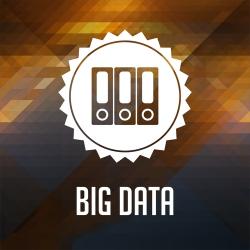
This information (aka “big data”) has the potential to address and dramatically shape the healthcare industry as the retail-ization of healthcare calls for deeper insights into consumer behavior, profitability and quality.

This information (aka “big data”) has the potential to address and dramatically shape the healthcare industry as the retail-ization of healthcare calls for deeper insights into consumer behavior, profitability and quality.
Market Drivers: Reform initiatives in healthcare industry have created incentives to compile and exchange big data. Rising costs and shifts in reimbursement models are stimulating demand and as payers enter into risk-sharing reimbursement models with both the providers and pharmaceutical companies, traditional fee-for-service plans have more competition.
- Healthcare data is growing at a faster pace than healthcare organizations can consume it; most of medical data is unstructured and is clinically relevant. The healthcare data resides in multiple places, some of which are:
- Claims data that shows healthcare utilization
- Clinical data captured at the point of care via EMRs, lab and imaging systems, physician notes etc.
- Pharmaceutical R&D data
- Patient behavior and preferences data
- A recent study suggests that big data has the potential to save health care stakeholders $300 to $450 billion in costs, or 12 to 17 percent of the $2.6 trillion baseline in U.S. health-related spending.
Big Data Approaches: Big data analytics is a process of examining large data sets to uncover patterns, unknown correlations and other useful information for many healthcare constituents (payers, providers, patients and pharmaceutical companies) to improve healthcare decision making.
- By analyzing population based trends along with patient specific information, big data can help physicians offer personalized treatment plans and spot prevention opportunities thereby significantly improving the quality of care.
- As consumers take more responsibility for healthcare decision-making and purchasing decisions, big data can offer cost transparency tools to enable them to make informed healthcare and healthcare financial decisions.
- Effectively utilizing big data will help pharmaceutical companies better identify new potential drug candidates and develop them into effective, approved and reimbursed medicines more quickly.
Growth and Consolidation: It is not surprising to see that Frost & Sullivan expects a five‐fold increase in the number of hospitals using advanced analytics software through 2016, from 10% adoption to 50% adoption. Although market is still in its infancy with much progress to be expected in the near future, the following representative transactions demonstrate that there is significant interest in the space:
- Optum’s acquisition of Humedica, a provider of cloud analytics for providers, life sciences companies and research organizations.
- Veritas’ acquisition of Truven, a provider of analytic and benchmark tools and to enable healthcare organizations to improve quality and reduce costs.
We’re in the process of researching business intelligence approaches in healthcare and big data, and plan to publish our findings in a mid-year research report. Until then, we would be interested to know what you’re seeing in the market, or if there are novel approaches that we should consider and assess.
(Big data in healthcare / shutterstock)